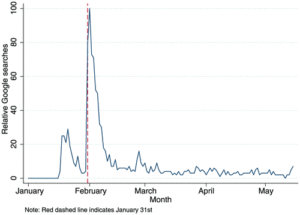Abstract
Empirical studies do not provide a univocal answer about the effects of corruption on political attitudes and behaviour. Focusing on the relationship between corruption and political trust, in this article we explore whether real-world corruption scandals have a negative causal effect on trust in politicians; whether the impact of scandals decays over time; and whether corruption scandals have a weaker impact among the supporters of the party involved in the scandal. We address these questions through a natural experiment generated by the coincidence of the uncovering of a corruption scandal in Spain (the Bárcenas scandal) and the fieldwork of the European Social Survey. Given that the day at which survey interviews were conducted is as-if random, the uncovering of the scandal represents a unique opportunity to assess the causal effect of corruption on individuals’ trust in politicians. The results indicate that: (i) the corruption scandal had a substantial negative effect on trust in politicians; (ii) the effect of the scandal was stronger in the days following its disclosure; (iii) the effect of the scandal was independent from individuals’ partisan preferences.
Ares, M., & Hernández, E. (2017). The corrosive effect of corruption on trust in politicians: Evidence from a natural experiment. Research & Politics, 4(2), 2053168017714185.
https://journals.sagepub.com/doi/full/10.1177/2053168017714185